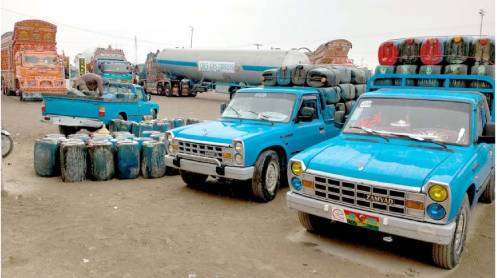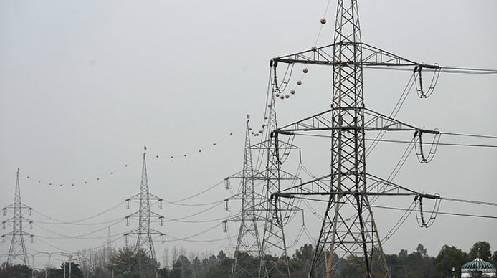GWADAR: The district administration has enforced an immediate ban on all oil-carrying vehicles — particularly Zamyad trucks and similar transporters — from moving fuel between Jiwani, Paanwaan and Gwadar city in a decisive move to curb smuggling of Iranian petroleum products.
A formal notification has warned drivers and transporters to avoid travelling towards Jiwani, cautioning that any violation will result in strict legal action, including on-the-spot confiscation of vehicles by law enforcement agencies.
Police, Pakistan Coast Guard and Frontier Corps have been directed to tighten monitoring and ensure full enforcement of the ban.
The crackdown targets a decades-old illicit trade that has long drained the national exchequer. A 2020 inquiry estimated that oil smuggling from Iran exceeded Rs250 billion annually. An intelligence report in April 2024 revealed that nearly 10 million litres of Iranian petrol and diesel are smuggled into Pakistan every day, causing revenue losses of over Rs227 billion.
Officials say the price disparity between Pakistan and Iran has turned fuel smuggling into a booming underground industry. One of the major smuggling corridors includes a sea route from Sistan, Iran, where speedboats ferry fuel cans to Jiwani via the Dasht river. Thousands of boats, supported by coastal storage points and small hotels, are allegedly part of this network.
From the coastline, fuel is shifted to modified trucks near Gwadar and later transported in non-custom-paid pickups across Balochistan and into parts of Punjab and Sindh.
While smuggling remains a source of livelihood for many local residents, authorities warn it also promotes tax evasion, undermines legitimate businesses and strengthens organised crime groups.
The region has previously suffered severe disruption due to its dependence on Iranian fuel. During the Israel–Iran conflict earlier this year, supply routes were choked, forcing 60–70% of petrol pumps in Turbat, Gwadar, Panjgur, Chagai, Washuk and Mashkail to shut down, also triggering food shortages as many items are imported from Iran.
Though successive governments have attempted to curb the illegal trade, the issue persists. Last year, Prime Minister Shehbaz Sharif instructed the Balochistan government to tighten controls on the movement of smuggled fuel. More recently, in August, the National Assembly passed legislation introducing digital tracking of petroleum products from origin to sale to combat smuggling and adulteration.
Story by Behram Baloch







